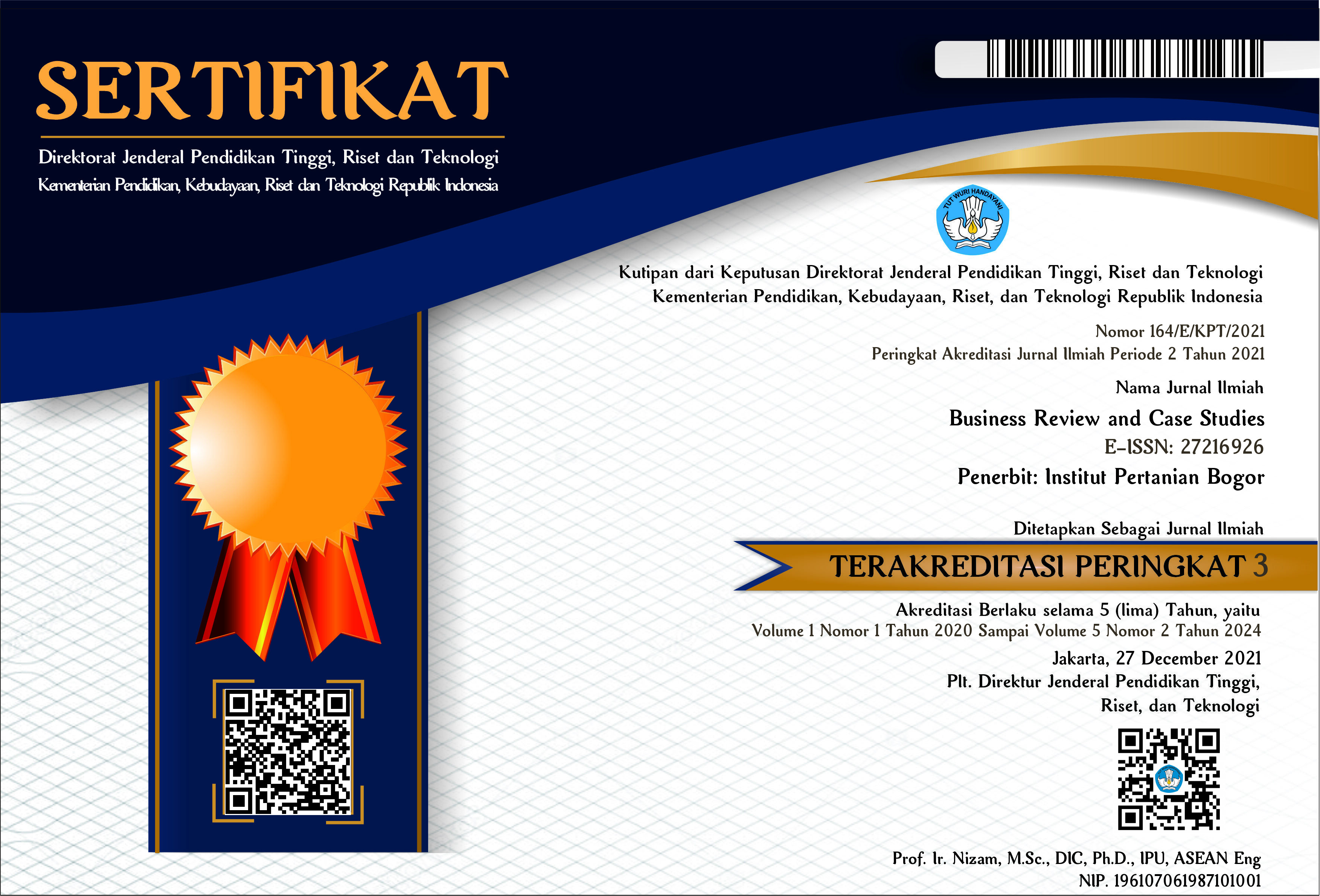Strategy Design To Increase Tiktok’s Adoption Intention By MSMEs of Clothes Retail in Bogor City
Abstract
Background: The increasing usage of technology is evident in how most people engage with social media and e-commerce. TikTok offers several advantages as a social media platform, a content creation tool, and a marketing and sales channel.
Purpose: This study aimed to analyze factors affecting TikTok adoption intention based on the Technology-Organization-Environment theory and develop strategic recommendations to enhance social media adoption among micro, small, and medium enterprises (MSMEs).
Design/Methodology/Approach: The research involved collecting both secondary and primary data by reviewing literature, distributing questionnaires, and conducting interviews. Data analysis was performed using tools like PLS-SEM and AHP.
Findings/Result: Easy to use and positive experiences possibly influence consumer behavior towards online shopping. MSMEs reluctant to adopt TikTok caused by challenges such as low interest and limited resources. The intention to adopt TikTok among MSMEs in the retail clothing sector is influenced by factors including owner support and compatibility. Encouraging the adoption of social media technologies depends heavily on motivation and awareness.
Conclusion: Several factors can influence the intention to adopt platforms like TikTok and other e-commerce media, including owner support, competitive pressure, and compatibility.
Originality/Value: Researches focused on adoption intention and combination of TOE and DOI theories are few in number.
Keywords: adoption intention, DOI, shopping behaviour, strategy design, TOE







.jpg)






